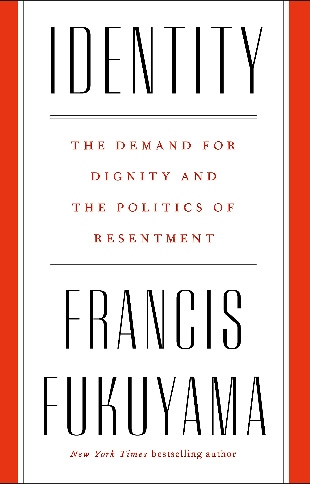"The terms identity and identity politics are of fairly recent provenance, the former having been popularized by the psychologist Erik Erikson during the 1950s, and the latter coming into view only in the cultural politics of the 1980s and '90s. Identity has a wide number of meanings today, in some cases referring simply to social categories or roles, in others to basic information about oneself (as in 'my identity was stolen'). Used in this fasion, identities have always existed.
"In this book, I am using identity in a specific sense that helps us understand why it is so important to contemporary politics. Identity grows, in the first place, out of a distinction between one's true inner self and an outer world of social rules and norms that does not adequately recognize that inner self's worth or dignity. Individuals throughout human history have found themselves at odds with their societies. But only in modern times has the view taken hold that the authentic inner self is intrinsically valuable, and the outer society systematically wrong and unfair in its valuation of the former. It is not the inner self that has to be made to conform to society's rules, but society itself that needs to change.
"The inner self is the basis of human dignity, but the nature of that dignity is variable and has changed over time. In many early cultures, dignity is attributed only to a few people, often warriors who are willing to risk their lives in battle. In other societies, dignity is an attribute of all human beings, based on their intrinsic worth as people with agency. And in other cases, dignity is due to one's membership in a larger group of shared memory and experience.
"Finally, the inner sense of dignity seeks recognition. It is not enough that I have a sense of my own worth if other people do not publicly acknowledge it or, worse yet, if they denigrate me or don't acknowledge my existence. Self-esteem arises out of esteem by others. Because human beings naturally crave recognition, the modern sense of identity evolves quickly into identity politics, in which individuals demand public recognition of their worth. Identity politics thus encompasses a large part of the political struggles of the contemporary world, from democratic revolutions to new social movements, from nationalism and Islamism to the politics on contemporary American university campuses. Indeed, the philosopher Hegel argued that the struggle for recognition was the ultimate driver of human history, a force that was key to understanding the emergence of the modern world."
